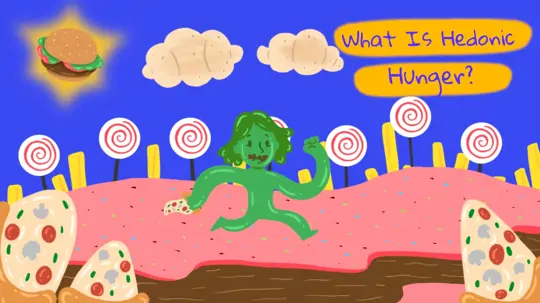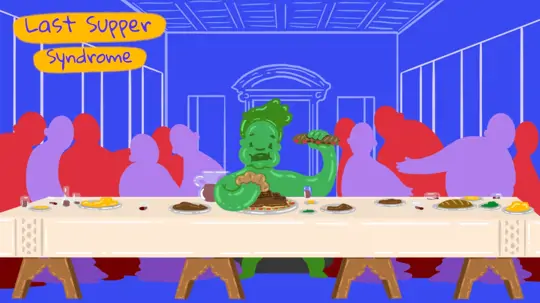
Start feeling better today!
Connect with your therapist today and take control of your life like our 850.000 happy clients.
Get StartedWhat is Mythomania?
Mythomania is a psychological problem in which people feel the need to lie, often chronically and without any purpose or benefit. Lying behavior can start with a simple, daily lie and become chronic over time and turn into mythomania. People with this disorder are called mythomaniacs1.
There are certain reasons why mythomaniacs are differentiated from people who exhibit daily lying behavior and why it is referred to as a disorder. The most important reason for this is that the lies told by people with mythomania occur impulsively in all areas of life, and the lies told do not serve any purpose (getting what you want, avoiding a negative situation, showing kindness, protecting someone else, etc.)2.
On the other hand, it is thought that mythomaniacs believe the lies they tell to a great extent themselves. These people can continue their lying behavior without experiencing any serious problems in their daily lives.
As a result, the rate of people applying to the clinic for psychological support is also low. For this reason, it can be said that research and observations on mitomania are insufficient3.
Although mythomania is not defined as a disorder in the psychiatric literature, it can be seen as an important symptom of some psychiatric disorders (personality disorders, anxiety disorders, impulse control disorders, etc.). Mythomania can cause serious problems in daily life and close relationships4. It is an important problem that needs to be addressed separately when it is recognized.
Who Has Mythomania and Why Does It Happen?
Although there is limited scientific literature on who may be more prone to mitomania and the causes of mitomania due to the lack of research on mitomania, various childhood experiences and low self-esteem may be considered to be effective in the development of mitomania.
Low Self-Esteem and Insecurity
When we look at the causes of mythomania, some common personality traits have been observed in individuals who lie pathologically. It has been observed that mythomaniacs are generally people with low self-esteem and intense insecurity. These two conditions are generally thought to be important factors in the development and continuation of mitomania.
Childhood Experiences
It is thought that certain experiences in a person's childhood history and situations that have a direct impact on their mental and physical health may be equally influential in the development of mitomania. Possible past experiences for people who develop lying disorders can be as follows:
- Traumatic events experienced or witnessed as a child
- Sexual, physical, or emotional abuse
- Consistently witnessing their parents lie (role model learning)
- Having a co-existing personality disorder (borderline personality disorder, antisocial personality disorder, impulse control problems, etc.)
- Intense need for appreciation, approval, and attention
- Head traumas
Pathological lying behavior is a disorder that is often rooted in childhood experiences and usually begins to manifest itself in adolescence (often between 15 and 16 years of age). Left untreated, it can persist into adulthood. In addition to childhood experiences, there are current views that mitomania can develop as a result of a traumatic head injury and changes in the brain.

What are the Symptoms of Mythomania?
Mitomaniacs may exhibit the following symptoms, which are sometimes easily recognizable from the outside:
- Lying even in everyday, ordinary matters without any interest (gaining sympathy, saving the situation, getting something, etc.)
- Telling detailed and carefully constructed, consistent lies
- Being more likely to lie in situations of high anxiety and stress
- Telling things differently, exaggerating and embellishing them without a reason
- Largely believing the lies told, not realizing that they are lying
- Creating new lies linked to the old lie in order to support the old lie
- Dramatizing the events and their position in them, playing the role of a victim
- Exaggerating the event and their role in it, playing the role of the hero
- Not feeling guilt, regret, and tension after lying behavior
- Not showing any physical reactions such as blushing, sweating, etc. while lying
- Displaying resentful and hostile behavior when the lie is exposed
- Not regretting the lie even after it is revealed
- Not admitting that they are lying
- Continuing to believe what they say is true and trying to convince others that it is true
Differences between Lying and Mythomania
While everyone says that lying is not a good thing to do, research shows that everyone tells white lies from time to time and is subject to them in the same way5. This means that almost everyone tells 1-2 harmless white lies a day, which are not intended to hurt anyone or harm themselves or those around them6.
In mythomania, lying behavior is much more impulsive and frequent. Lying has become an important part of life for the person with mythomania. Unlike normal lying, the person lies continuously without any purpose or interest and mostly believes the lies they tell themselves3.
Mythomania and Personality Disorders
Mythomania can occur alongside disorders such as anxiety disorders, depression, and impulse control disorders. Research shows that many psychopathological conditions are accompanied by mitomania.
A predisposition to pathological lying behavior is particularly common in antisocial personality disorder, narcissistic personality disorder, borderline personality disorder, bipolar disorder, and psychosis7.
Antisocial Personality Disorder
When we look at antisocial personality disorder, we observe that people generally do not obey social rules and engage in criminal and violent behavior8. This greatly increases the susceptibility to lying behavior.
Narcissistic Personality Disorder
The general grandiosity and self-righteousness in people with narcissistic personality disorder may increase the likelihood of distorting events, magnifying one's own role, and creating stories that did not happen, and strengthen the possibility of mythomania.
Borderline Personality Disorder
In borderline personality disorder, which is one of the cluster B personality disorders, it is thought that, with an intense fear of abandonment, the person may exhibit chronic lying behavior in manipulative ways in order to try to control the other person.
Bipolar Disorder
Like most risky and impulsive behaviors (excessive mobility, uncontrolled spending, life-threatening risky behaviors, etc.) that increase during the mania period of bipolar disorder, which is one of the chronic mental health problems, it is noticeable that the predisposition to lying behavior increases significantly.
Psychosis and Schizophrenia
In psychosis and schizophrenia, reality and fiction are mixed together. In this respect, patients in this group can unconditionally believe in what they say and portray a mythomanic picture in the same way.

What Happens If Lying Disorder Is Not Treated?
Lying behavior can start with a simple, everyday lie and continue under the influence of environmental and individual factors, turning into a lying disorder. People who are noticed to lie continuously may be ostracized and isolated from society.
In addition, the fact that lying behavior becomes continuous in all areas of life, that lying gives birth to lying, and that the person himself believes the lies he tells can cause him to be unable to distinguish between reality and fiction day by day.
Believing what you think and say, regardless of whether it is real and irrational or not, and trying to make the people around you believe it, portrays a schizophrenic picture in psychology. It is known that mythomania, which initially emerges with the desire to achieve something, to attract attention, or to turn a situation in one's favor, can become chronic and seriously damage one's perception of reality if left untreated.
Therefore, it is very important to get support for pathological lying behavior as early as possible in order to protect oneself and one's relatives from situations that may negatively affect their quality of life and mental health.
Is there a cure for myomania?
Mythomania, as mentioned, is an unhealthy condition that becomes chronic over time and can lead to the individual building their life on great fiction and lies. Although there are certain common characteristics and symptoms among people who lie, it should be remembered that this is a unique and complex process for each individual.
Mythomania is often caused by another mental health problem (antisocial personality disorder, narcissistic personality disorder, impulse control disorder, etc.). Therefore, the individual's history, general mental health status, and the underlying causes of the behavior should be thoroughly investigated.
At this stage, especially in cases accompanied by a personality disorder, psychological support as well as treatment by a psychiatrist are of critical importance.
Lying Disorder and Psychotherapy Process
In the psychotherapy process of mythomania, the mythomaniac person deals with his or her past, beliefs, and emotions that push him or her to lie in the presence of a therapist. The person's therapy process is supported by medication when necessary3.
During the therapy process, it is important for the person with lying disorder to be clearly aware of his or her situation, to be conscious of his or her recurrent lying behavior, and to be motivated to continue the process.
It is known that people with lying disorders often do not seek any support because they believe the lies they tell and therefore are not aware of their condition. For this reason, when mitomania is detected in people who come to therapy for the support of family members or for another mental health problem, the person should first be informed about the existing situation in a concise, clear, and non-judgmental manner.
As in other areas of one's life, it is possible to lie to one's therapist during the therapy process. It is important for the therapist to be aware that the client may also lie to him or her and to emphasize in a gentle and clear way that this may negatively affect the course of the therapy process. This safe, open, and collaborative relationship between the therapist and the client can positively affect the client's insecurity in this aspect alone.
In addition to the secure relationship with the therapist and psychiatrist and the psychological support received, the importance of social support from the immediate environment cannot be ignored. During the therapy process, the non-critical, compassionate, and motivating attitude of the client's relatives and the healthy boundaries they set positively affect the person's process.
How to Treat Someone Who Lies All the Time
If you spend most of your day-to-day life with someone who is a mythomaniac, it is clear that constant exposure to lying behavior can be challenging. Experts therefore offer suggestions to make life more comfortable for people who have a lying disorder in close proximity:
- Recognize that the other person has a significant health problem and remind yourself of this at intervals
- Set healthy boundaries in the relationship with the person with mythomania and remind them of these boundaries from time to time
- Recognize lying behavior that arises from insecurity and the need to prove oneself, and in a non-critical, gentle, and compassionate manner, convey the message that the relationship between you does not need it
- When lying behavior is detected, share clearly how it makes you feel using I language (e.g., "When you lie, I feel sad and helpless.")
- Remind yourself that it is quite natural and understandable to feel angry and helpless at times in the face of a mythomaniac
- Calmly communicate the negative emotions you feel towards the other person
- Get information about mythomania from reliable and scientific sources and encourage the person to seek psychological support accordingly
References
- Mythomania, Wikipedia.
- Aydın, M.Ş. & Balım, S. 2021, Why Do We Lie? An Exploratory Look at the Lying Behaviors of University Students and Adults, Journal of Nesne Psychology.
- https://www.florence.com.tr/mitomani-nedir
- Curtis, D.A.2020, Pathological Laying: Theoretical and Empirical Support for a Diagnostic Entity, Psychiatry online.
- Korkmaz, S. et al, A Self- Incriminating Case of Mythomania, International Neuropsychiatric Disease Journal.
- Muzinic, L. et al, 2016, Psychiatric aspects of normal and pathological lying, International Journal of Law and Psychiatry.
- Dike, C. 2005, Pathological lying revisited, The journal of the American Academy of Psychiatry and Law.
- Hare, R. D. et al, 1989, The Psychopath as Prototype for Pathological Lying and Deception, Credibility Assessment pp 25-49.





